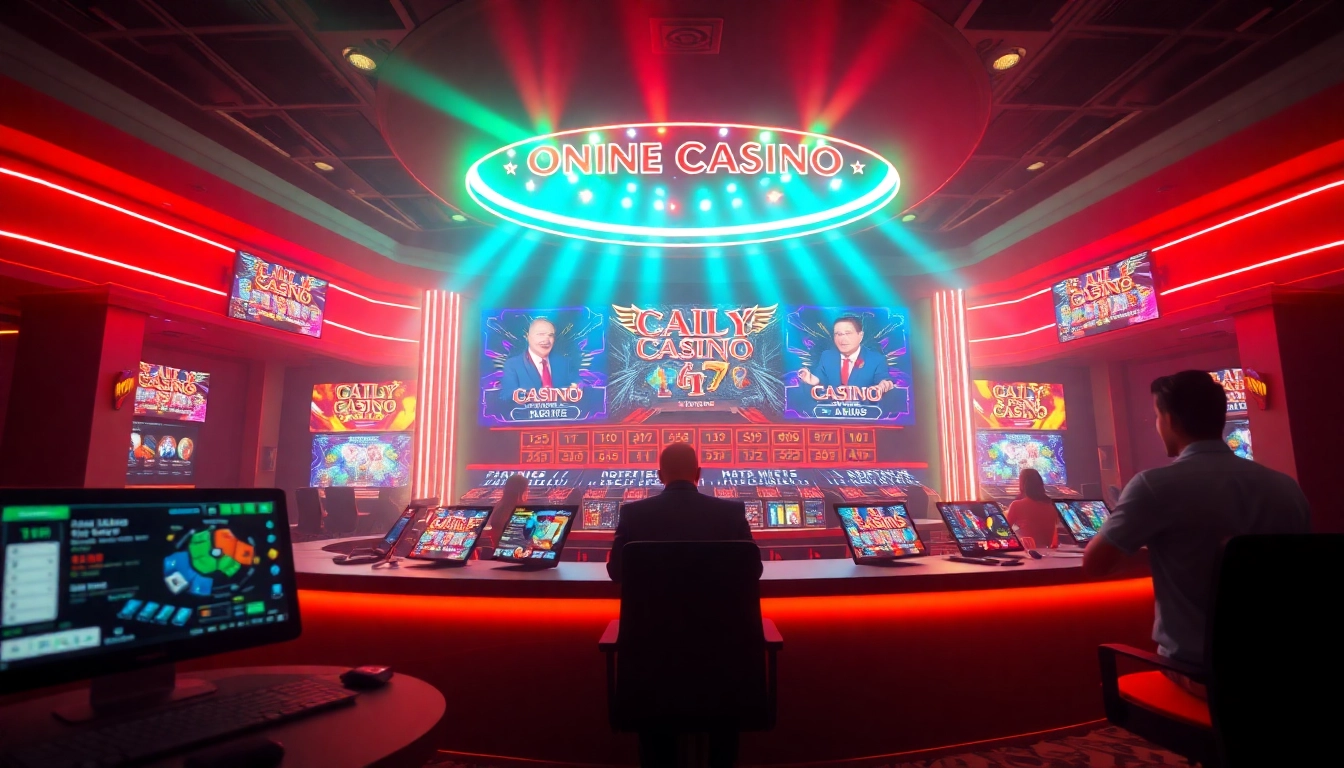Understanding the Role of a Rehabilitation Center in Addiction Treatment
Addiction is a complex and often chronic disease that requires comprehensive and specialized treatment approaches. Recovery from dependencies such as drug and alcohol addiction involves not only detoxification but also psychological, emotional, and social rehabilitation. Central to this multifaceted process is the role played by dedicated rehabilitation center. These facilities serve as the foundation for effective recovery, providing a safe environment where individuals can undergo specialized therapies, gain new skills, and rebuild their lives. Understanding what makes a rehabilitation center essential helps in making informed decisions about addiction treatment and what to expect during the recovery journey.
Definition and Types of Rehabilitation Centers
A rehabilitation center is a healthcare facility that offers structured treatment programs aimed at helping individuals recover from substance dependencies and related mental health issues. Such centers can be inpatient or outpatient, residential or day programs, and may focus on specific populations like adolescents, women, or men.
– Inpatient rehabilitation centers (residential facilities) provide comprehensive care, 24/7 supervision, and a controlled environment essential for severe cases.
– Outpatient centers offer flexible scheduling, allowing individuals to receive therapy while maintaining their daily routines.
Each type is designed with specific treatment goals in mind and tailored to individual needs, emphasizing the importance of choosing the right kind of facility based on the severity of addiction and personal circumstances.
Key Benefits of Inpatient vs. Outpatient Facilities
Inpatient Facilities
Inpatient rehabilitation offers immersive treatment within a protected environment. This setting minimizes external triggers and provides round-the-clock medical and psychological support. It is most suitable for severe dependencies, co-occurring mental health disorders, or patients with unstable living conditions. Advantages include structured routines, immediate access to medical care, and intensive therapy programs that facilitate rapid stabilization.
Outpatient Facilities
Outpatient rehab allows patients to stay in their community, maintaining family and work responsibilities while attending therapy sessions and support groups. This option benefits individuals with less severe addiction issues or those who have completed inpatient treatment and need ongoing support. Its flexibility helps in fostering social reintegration and developing independence, though it requires strong motivation and a supportive environment to prevent relapse.
Both types of facilities play critical roles in recovery, and often, a combination of inpatient and outpatient therapies offers the most holistic approach.
How a Rehabilitation Center Facilitates Recovery
Rehabilitation centers serve as the cornerstone of effective addiction treatment by providing a comprehensive support system tailored specifically to the needs of each individual. They facilitate recovery through a combination of medical interventions, psychological therapies, life skills development, and ongoing support.
– Medical supervision ensures safe detoxification and management of withdrawal symptoms.
– Psychosocial therapies, including cognitive-behavioral therapy (CBT), motivational interviewing, and group counseling, address underlying psychological issues.
– Educational programs focus on relapse prevention, healthy lifestyle habits, and rebuilding social relationships.
– Integrating natural surroundings, such as the greenery and tranquil environment of centers like «Троицкий», enhances mental well-being and supports holistic healing.
Effective centers also emphasize the importance of building resilience, fostering self-awareness, and establishing a solid foundation for long-term sobriety.
Essential Components of Effective Addiction Rehabilitation
Medical and Psychosocial Support Strategies
Successful rehabilitation requires a balanced approach combining medical treatment and psychosocial support. Medical interventions typically include supervised detoxification, medication-assisted treatment (MAT), and management of co-existing health conditions. Psycho-social strategies encompass therapy, counseling, and support groups that help patients understand their addiction, address underlying issues, and develop coping mechanisms. At «Троицкий», a multidisciplinary team of specialists works collaboratively to ensure that each patient receives tailored support, facilitating both physical healing and emotional resilience.
Customized Treatment Programs and Therapies
No two individuals are identical, and effective treatment recognizes this by offering personalized programs. These plans integrate evidence-based therapies such as cognitive-behavioral therapy (CBT), motivational enhancement therapy, and mindfulness practices. Additionally, innovative techniques like art therapy, recreational therapy, and natural healing environments help in addressing psychological scars and promoting healthy behaviors. The center’s tailored approach increases treatment adherence and long-term success.
The Role of Family and Community in Rehabilitation
Recovery is strengthened significantly through family involvement and community support. Family therapy educates loved ones about addiction mechanics and equips them with strategies to support ongoing recovery. Community integration through support groups, vocational training, and social activities fosters a sense of belonging and purpose. The «Троицкий» center actively promotes these facets, ensuring the patient’s reintegration into society with a strong foundation.
Choosing the Right Rehabilitation Center in Kyiv
Criteria for Selection: Accreditation, Success Rates, Comfort
Selecting a rehabilitation center involves evaluating several critical factors:
- Accreditation and Licensing: Verify that the center adheres to national and international standards, ensuring quality care.
- Success Rates: Seek transparency regarding treatment outcomes and patient testimonials.
- Facility Comfort and Environment: A pleasant, welcoming atmosphere, like the green surroundings of «Троицкий», enhances healing.
- Range of Services: Ensure the facility offers comprehensive therapies, aftercare, and family support.
- Qualified Staff: Look for experienced doctors, psychologists, and dedicated support personnel.
What to Expect During Treatment
In a reputable center, patients undergo an initial assessment, detoxification if necessary, followed by intensive therapy sessions, life skills training, and recreational activities. The process is structured yet flexible, with continuous progress tracking. The «Троицкий» center emphasizes creating a supportive environment where patients feel safe, respected, and motivated to progress toward sobriety.
Post-Rehabilitation Support and Relapse Prevention
Recovery does not end upon leaving the center. Ongoing support is essential to sustain sobriety. This includes outpatient counseling, support groups like the «12 Steps», family involvement, and relapse prevention planning. The «Троицкий» center offers personalized aftercare programs, helping individuals navigate social and emotional challenges and maintain their long-term sobriety.
Innovative Approaches in Rehabilitation for Dependencies
Integrating Non-religious 12-Step Programs
The «12 Steps» model is a highly effective, spiritually neutral framework that encourages personal responsibility, honesty, and community support. Unlike faith-based approaches, its secular version, employed by centers like «Троицкий», makes it accessible to a wider audience, emphasizing personal growth and resilience without religious connotations. Its success lies in fostering accountability and providing a structured pathway to recovery.
Utilizing Natural Settings for Healing
The natural environment plays a vital role in healing. The «Троицкий» center’s lush, green surroundings create a tranquil atmosphere that reduces stress, enhances mood, and improves mental clarity. Nature-based therapies, outdoor activities, and gardening are incorporated into treatment to promote physical activity and spiritual renewal, reinforcing the mind-body connection essential for lasting recovery.
Emerging Technologies and Therapies in Addiction Recovery
Advances in technology, such as virtual reality therapy, mobile applications for relapse prevention, and telehealth counseling, are transforming addiction treatment. These tools extend the reach of support, facilitate real-time monitoring, and promote engagement outside traditional settings. «Троицкий» centers integrate these innovations to stay at the forefront of effective addiction therapy.
Results and Success Stories from Our Kyiv Rehabilitation Center
Case Studies of Patients Overcoming Addiction
Many patients have experienced transformative journeys at «Троицкий». For example, a young man struggling with heroin dependence successfully completed a tailored program involving medical detox and psychosocial therapy. Post-treatment, he has maintained sobriety for over five years, regained his confidence, and now advocates for addiction awareness.
Long-term Outcomes and Lifestyle Changes
Long-term success is characterized by sustained sobriety, improved interpersonal relationships, employment stability, and enhanced mental health. Many alumni report a renewed sense of purpose and fulfillment, crediting the center’s holistic approach for their recovery.
How Our Center Ensures Sustainable Recovery
Sustainable recovery is achieved through continuous support, relapse prevention strategies, and fostering community bonds. The «Троицкий» team maintains contact with former patients, provides ongoing counseling, and encourages participation in ongoing support groups to reinforce their commitment to a sober lifestyle.





